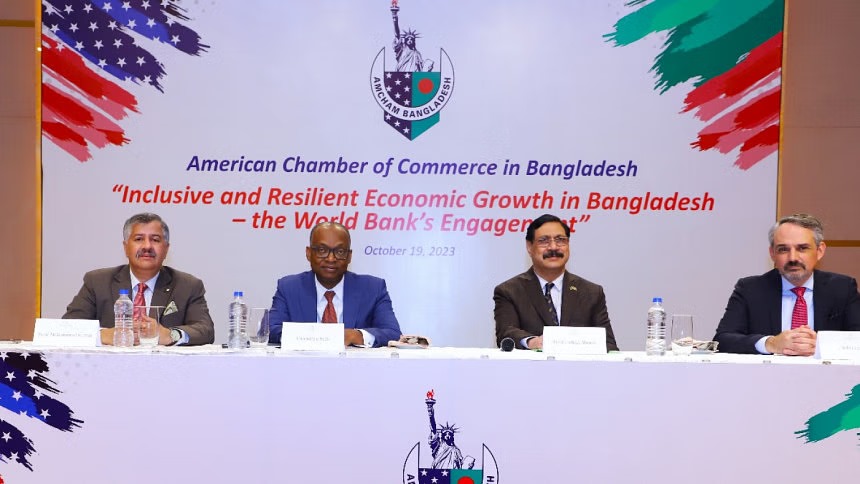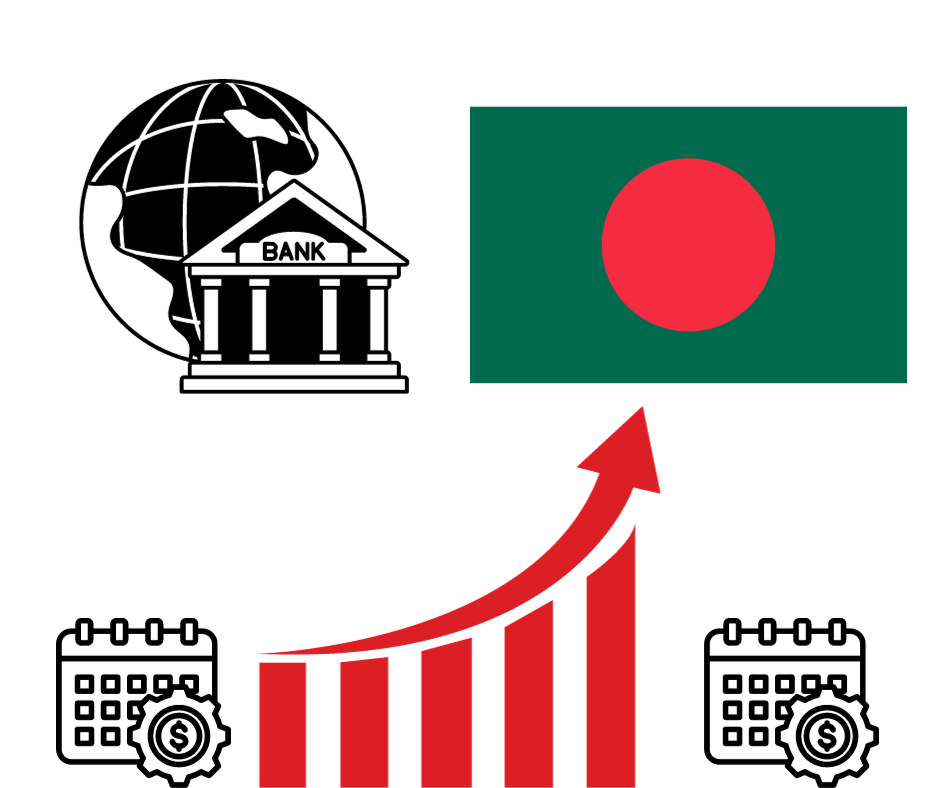In the fiscal year 2023-24, the World Bank’s leading official anticipates that inflation will likely persist at elevated levels in the Bangladesh economy. This projection hinges on various factors, including global conditions and domestic variables such as exchange rates, monetary policies, and fiscal strategies.
Abdoulaye Seck, who serves as the Country Director of the World Bank for Bangladesh and Bhutan, suggests that the substantial inflationary pressures may gradually wane over the medium term. This transformation could occur as import prices stabilize, according to Seck.
“Over the past two months, we have observed this projection manifesting in real data, which reflects a lackluster performance in terms of export earnings and remittance inflows,” Seck pointed out.
He delivered these remarks during a customary luncheon meeting held at the Sheraton Dhaka in the capital, organized by the American Chamber of Commerce (AmCham) in Bangladesh.

During the AmCham gathering, Abdoulaye Seck, the Country Director for the World Bank in Bangladesh and Bhutan, and Syed Ershad Ahmed, President of the American Chamber of Commerce in Bangladesh, were both present. The luncheon event took place at the Sheraton Dhaka in the capital.
In conclusion, the near-term outlook suggests that policy adjustments can be instrumental in stabilizing macroeconomic conditions. Seck emphasizes that enhancing exchange rate flexibility can serve as an incentive for migrants to use formal channels for remittances and encourage the repatriation of export earnings. Additionally, reinforcing the transmission of monetary policy, which includes phasing out interest rate caps on lending, can play a crucial role in containing inflation. Furthermore, addressing financial sector vulnerabilities through effective bank supervision is essential. While recent monetary policy updates are a step in the right direction, Seck urges a faster implementation pace to address these issues effectively.


